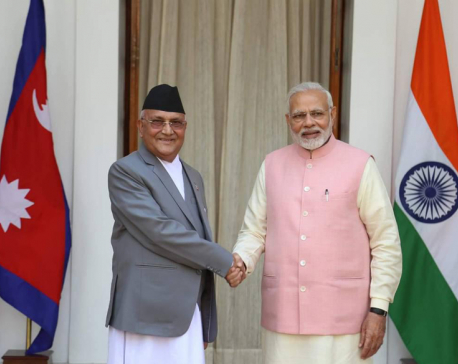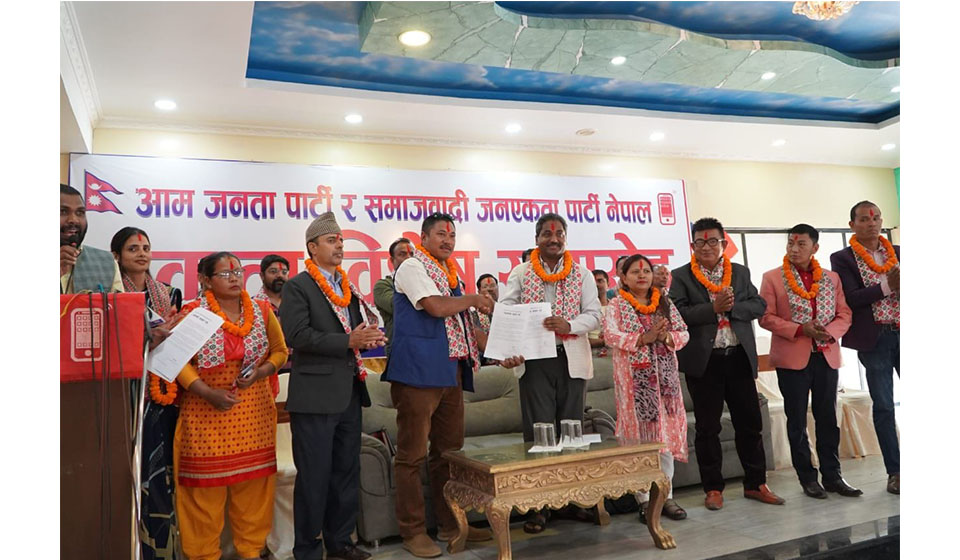
OR


Kedar Neupane
The author is a founding board member of Nepal Policy Institute, an independent non-political international think tank, and a former staff of the United Nations High Commissioner for Refugees.Neupanek1950@gmail.com
Nepal must adopt liberal laws and provide much better opportunities than other Asian countries if it is to become an attractive foreign investment destination
It is welcome that Government of Nepal has proposed bills to address foreign private-public partnership, anti-dumping, copy-rights protection and countervailing. Any reform in foreign direct investment laws must also first take into consideration economic conditions confronting the nation. In this, foreign direct investment law falls short of expectations for there is a list of areas prohibited for foreign investment and sets lower limits on foreign investment amount. The bill appears primarily focused on inflow of foreign currency instead of spurring domestic employment through investments. In general, this is restrictive rather than open for new opportunities for private foreign direct investments in small and medium enterprises.
Foreign investment has two sides: bilateral foreign assistance received through multilateral and bilateral agreements between the governments and institutions and private foreign direct investment received through international investors. In Nepal, the government should focus on financing large infrastructure development projects through bilateral and multi-lateral programs whereas private foreign investors should also be encouraged to invest in small and medium size enterprises which helps generate wider economic activities across local markets, thereby creating domestic employment for Nepalis.
Ground realities
Nepal is currently facing serious problem of rising trade deficit with India, for imports are rising disproportionately while exports have plummeted rapidly in recent years. Imports of food items is mounting, and petroleum products have increased much more than ever before. This is leading to a situation of economic emergency as the nation has become food import dependent. Government’s policy, thus, should first encourage all investors, both non-Nepali as well as Nepali without prejudice, to freely invest in all economic sectors including in small and medium enterprises. This helps generate domestic employment, contributes to better balance of payments and creates a sense of economic security.
Nepal faces several challenges in foreign direct investments landscape. That includes prevailing negative perceptions about foreign direct investment, inadequate infrastructure and connectivity, lack of supply of energy and water and efficient cross-border trade and no easy access to export markets. Transportation cost, probably one of the highest in Asia, is a serious constraint.
Large industrial enterprises require large market access, opportunities and a vibrant consumer base. Nepal provides none. These elements hinder expanding industrial base and heavily weighs in foreign private investor’s decision-making process. Unfortunately, Nepal falters in these areas and has so far failed to address these challenges, which is why it is failing to attract large-scale foreign investments. This implies that Nepal is not a highly favorable destination for large industrial establishments. Nepal must adopt liberal laws and provide much better opportunities than other Asian countries if it is to become an attractive foreign investment destination. If Nepal continues to adopt protectionist legislations including in small and medium size enterprise foreign direct investment is unlikely to come by. Nepal may continue to face food insecurity. Nepali consumers will pay heavy price, face with limiting choices and pay higher taxes on rising prices of imported goods with low income resulting in higher costs of living.
Recently government has proposed important bills related to foreign investments but the foreign direct investment bill is not much different than existing acts for it is only specific to foreign investment in large industry/enterprise with more than six billion rupees while introducing no substantive changes to promote foreign direct investment environment for small and medium size enterprises that can promote investment in small and medium enterprises and that, in turn, could largely address country’s economic insecurity and import dependence.
Shortcomings abound
Comparing the government bill with the proposal shared with the government by Nepal Policy Institute (NPI) reveals following shortcomings. First, NPI proposes that non-Nepali national, Nepali diaspora and people of Nepali-origin should be allowed 100 percent ownership in economic enterprises, while welcoming investments in all economic sectors. The government proposal is open only for Non-Resident Nepali and not to other people of Nepali origin.
Second, government proposes foreign investment of six billion rupees or above through Investment Board of Nepal (IBN). But it is silent about the investment below that figure. Such investment is presumably reserved for Nepali nationals. As per NPI, foreign investment amounts up to 15 million rupees is reserved to Nepali but if enterprise involves transfer of technology this threshold is reduced to 10 million and must directly employ twenty Nepalis.
Third, NPI proposes that foreign investments, irrespective of investment amount, should be approved by Investment Board of Nepal under one window and must be approved within seven working days. NPI also proposes that there should no bureaucratic steps in processing papers once it is approved by IBN.
Fourth, NPI proposes that former Nepali citizens and Nepal-origin individual who may have lost their Nepali citizenships (because some countries do not allow dual citizenships) should have the same investment rights as that of a Nepali citizen. The government proposal does not address this concern.
Fifth, NPI proposes that Nepal-born former Nepali national could own 5,000 square meters of urban land and four hectares of rural land for the sole purpose of business and enterprise purposes. This is not in the government proposal.
Sixth, all investments, foreign or national, must comply with environmental standards. This is not addressed by the government proposal. Likewise, there is ambiguity regarding expropriation or confiscation by administrative purpose and political measures in the operation of foreign owned enterprises.
Seventh, NPI proposes that investor should be allowed to repatriate foreign currency investment, profit from investment and principal of any loan obtained during business operations without going through Nepal Rastra Bank. This authority should be delegated to commercial banks. But the government proposal is bureaucratically restrictive and requires to be processed through commercial banks to Nepal Rastra Bank. This is a restrictive procedure. It should be simplified and delegated to commercial banks because all banks in Nepal operate under the rules and regulations of Nepal Rastra Bank.
Eighth, commercial banks are only allowed to handle “Scow Agreement”. They should be given broad roles in handling foreign investments once foreign currency account is established with commercial banks for the purpose of businesses. The government proposal does not have any provision for this. NPI has proposed that dispute settlement can also be conducted outside Nepal. This remains unaddressed. Transfer of foreign technology should be part of capital contribution to enterprise, which remains vague in government proposal. NPI proposes that machineries, equipment, plant and advanced technology required for establishment and smooth running of enterprises and industries should be exempted from import taxes and customs duties. This is not included in the government proposal.
NPI proposes that enterprises with foreign owned capital and parties to business co-operation contracts should have the right to autonomy in conducting business/enterprise in accordance with the objectives stipulated in contracts and in investment license permit. Government proposal is silent and unclear in this;
NPI proposed that investors should be allowed to freely choose their employees and should not be imposed to hire Nepalis at senior positions without due considerations of business interests. Government proposal in this is not encouraging. Investor with foreign owned capital should be allowed to deal with foreign currency for business purposes directly from commercial banks. This should not be restrictive and commercial bank’s role is limited in the government proposal.
NPI suggests that provincial government should, in cooperation with IBN, be allowed to deal with foreign private investment in small and medium size enterprises. This is not in the government proposal. Likewise, NPI proposes that non-Nepali investor and his/her family should be issued a minimum period of one-year “investor visa” with multiple entry/exit and should not be required to be registered as a foreigner. Government proposal is rather restrictive in this and there is no “Investor Visa” program.
Finally, NPI proposes mandating additional roles to National Planning Commission making this institution more effective in monitoring implementation of national economic development policy priorities and investment on all economic projects. Government bureaucracy is consistently appearing weak in systematic project monitoring of implementation. NPI observes that there is no effective monitoring mechanism of foreign investment projects. In the absence of regular monitoring of implementation nearly all government-financed projects overrun project deadlines resulting in cost escalation contributing to widespread corruption. A strong monitoring of implementation is urgently required to restore public confidence. There is no government proposal on how to improve this shortcoming.
The author, President of ‘We for Nepal’ and a former UNHCR international official, is also the advisor to NRNA Switzerland
Neupanek1950@gmail.com
You May Like This

Investment for prosperity
Sources of investment lie in our doorsteps but Nepal is still reeling under low investment trap inimical to achieving prosperity... Read More...

Media for democracy
In a modern democracy, citizens feel empowered when they have adequate access to truthful information without which they cannot take... Read More...

The Modi ripples
When two elephants make love, the Tibetans get squeezed out from India and, it will not be a matter of... Read More...




Just In
- Sunkoshi-Marin Diversion Project’s tunnel construction nears completion, breakthrough scheduled for May 8
- Govt tightens security arrangement for Third Investment Summit 2024
- Pesticide residue found in vegetables in Nepalgunj
- Aam Janata Party and Samajwadi Jana Ekata Party merge
- 1,600 participants confirmed for Nepal Investment Summit
- Ilam-2 by-elections held peacefully, vote count likely to start tonight
- NEA schedules five-day power cut across Kathmandu Valley for underground cable installation
- Hundreds of passengers including foreign tourists in distress as poor visibility halts flights to and from PRIA







-1200x560-wm_20240427144118.jpg)





Leave A Comment